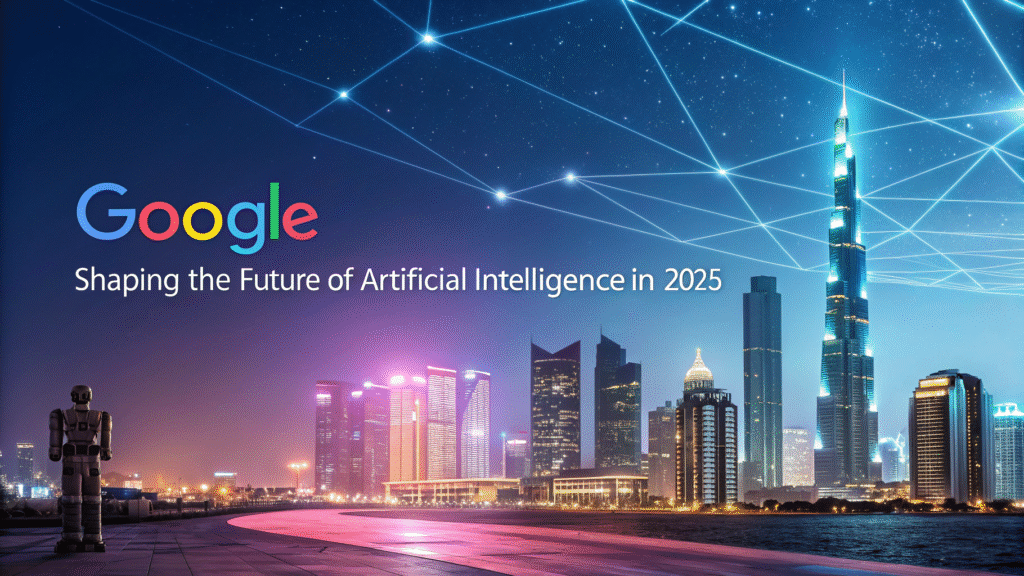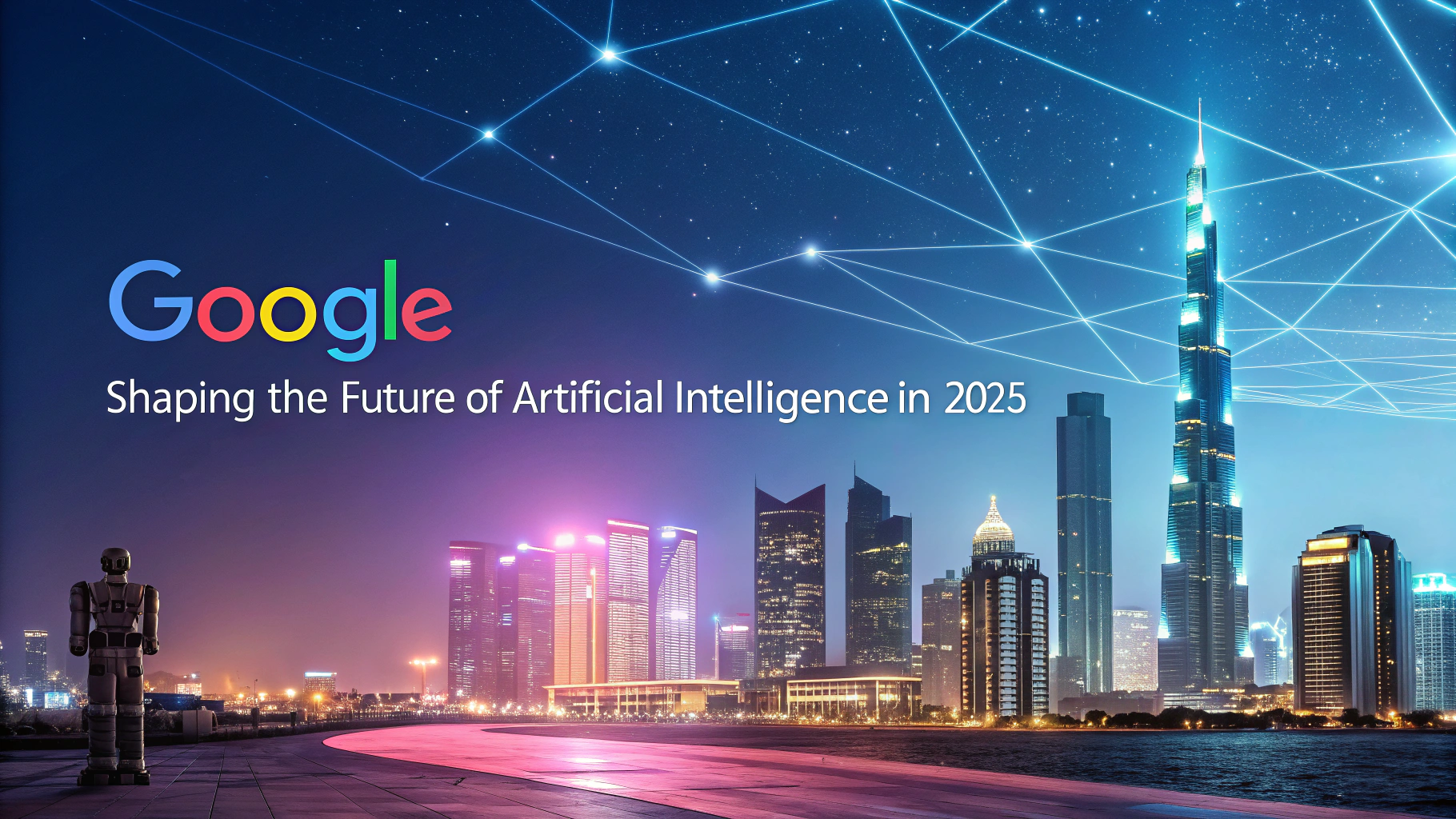Artificial Intelligence (AI) has become the driving force of innovation across industries, and few companies have invested as deeply in AI as Google. From search algorithms to self-driving cars, Google’s AI research and products are reshaping how we interact with technology.
In 2025, Google’s AI ecosystem — including Google DeepMind, Gemini, Google Cloud AI, and AI-powered search — is setting new standards for innovation. This article explores AI at Google, its applications, breakthroughs, and how it is transforming industries and everyday life.
A Brief History of Google’s AI Journey
- 2001–2010: Google began experimenting with machine learning for search optimization.
- 2010–2015: Acquisition of DeepMind (2014) accelerated Google’s AI research.
- 2016: Google’s AlphaGo beat the world champion in the board game Go, a milestone in AI history.
- 2017: Google introduced the Transformer architecture, the backbone of modern AI (including GPT and Gemini).
- 2023: Launch of Google Bard (later rebranded into Gemini).
- 2025: Google continues to lead in AI research, infrastructure, and consumer products.
Core AI Divisions at Google
1. Google DeepMind
DeepMind, based in London, is Google’s AI research lab responsible for breakthroughs in:
- AlphaGo & AlphaZero (game-playing AI)
- AlphaFold (protein folding predictions for biology)
- Robotics AI (autonomous agents)
- Healthcare AI (medical image analysis, drug discovery)
2. Google Gemini (formerly Bard)
Gemini is Google’s most powerful AI language model in 2025, competing with OpenAI’s GPT-5.
Features:
- Advanced reasoning & multimodal capabilities (text, images, audio, video).
- Integrated into Google Search, Workspace, and Android devices.
- Used for productivity, coding, content creation, and research.
3. Google Cloud AI
Enterprises use Google Cloud AI for:
- Machine Learning Models (TensorFlow, AutoML, Vertex AI).
- Data Analytics & AI Infrastructure.
- AI Security for fraud detection, anomaly detection.
- Custom AI solutions for retail, finance, and healthcare.
4. AI in Google Search
Google Search now runs on AI Overviews — providing summarized answers instead of just links.
- Enhanced voice search with Gemini.
- Context-aware results.
- Personalized search recommendations.
Google’s AI Products in 2025
- Gemini Assistant – Advanced AI assistant integrated into Android and Pixel devices.
- AI-Powered Google Search – Conversational and reasoning-based results.
- Google Workspace AI – Smart compose, AI-powered docs, slides, and spreadsheets.
- YouTube AI – Automatic video summaries, chapter generation, AI translations.
- Google Translate AI – Real-time translation with improved accuracy.
- Waymo – Google’s self-driving car project powered by deep reinforcement learning.
- AI in Healthcare – AI tools for cancer detection, medical imaging, and personalized treatments.
Key AI Breakthroughs at Google
1. AlphaFold in Healthcare
Predicted 3D protein structures for nearly all known proteins, revolutionizing drug discovery.
2. Multimodal Gemini
Gemini goes beyond text, understanding and generating images, code, speech, and video seamlessly.
3. AI for Sustainability
- AI-powered energy optimization in Google data centers.
- Climate modeling for better disaster prediction.
4. AI in Education
Google Classroom AI helps personalize lessons, provide instant feedback, and assist teachers.
Advantages of Google’s AI
✅ Scalability: Runs on Google’s massive infrastructure.
✅ Accessibility: AI integrated into widely used tools (Search, Gmail, Docs).
✅ Research Leadership: DeepMind leads the world in AI innovation.
✅ Open-Source Contributions: TensorFlow and JAX are widely used by researchers.
Challenges Google Faces in AI
❌ AI Bias & Fairness: Concerns about bias in search results and recommendations.
❌ Competition: Fierce rivalry with OpenAI, Anthropic, and Microsoft.
❌ Privacy Issues: Handling sensitive user data responsibly.
❌ Regulation: AI governance and compliance with global AI laws.
Future of AI at Google (2025 and Beyond)
- Gemini Ultra Expansion: Becoming the central AI for Google’s ecosystem.
- AI Agents: Task-specific AI agents inside Android and Google Workspace.
- Healthcare AI Breakthroughs: More advanced diagnostic and treatment support.
- Quantum AI: Google exploring quantum computing to accelerate ML training.
- Ethical AI Leadership: Focus on responsible AI and transparent decision-making.



